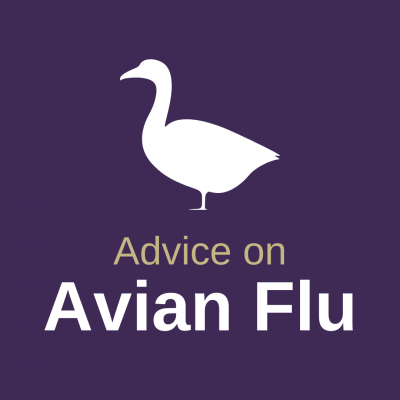The UK Health Security Agency (UKHSA) and the City of Wolverhampton Council are urging people not to touch any sick or dead wild birds in the area – with avian flu confirmed in the Canada goose population in West Park.
The council and the UKHSA is working with APHA and the Royal Society for the Prevention of Cruelty to Animals (RSPCA) to manage the situation and protect public health and the risk to other birds, wildlife and pets.
The A(H5N1) strain is highly pathogenic to poultry and other birds, but the risk to human health is considered very low. However, it is vital that people do not touch sick wild birds or wild bird carcasses, and infection control measures may be necessary if they do.
Wolverhampton's Director of Public Health John Denley said: “I would like to reassure residents that the risk of them catching avian flu is very low. This is an infectious virus which spreads among birds and it is very unusual for humans to be affected.
“However, we are issuing a precautionary warning as it is possible for humans to catch the virus through close contact with an infected bird, dead or alive. Therefore, it is very important that you do not touch any sick or dead wild birds you may find. Equally, you must not touch their droppings, eggs or bedding.
“If you find any dead wild birds, do not touch them and instead report them to of Wolverhampton Council’s park rangers team on 07766 473 150. In addition, please do not feed any birds until further notice as this encourages them to congregate and risk spreading the infection to other birds.”
Dr Adrian Phillips, Consultant in Communicable Disease Control with the UKHSA in the West Midlands, said: “The risk to the public from this strain of avian flu is very low, however it is important that people do not touch any sick or dead birds. As a precaution, anyone who has been in contact with the birds or droppings in an area where the infection has been confirmed, may require a course of antiviral medication and close monitoring for 10 days from last contact with infected birds.”
If you have found and touched a sick or dead bird
- In areas where the infection has been confirmed or is suspected, anyone who has been in contact with sick or dead birds or their droppings should make sure any footwear is properly cleaned and thoroughly wash their hands in soap and water.
- Then contact the UK Health Security Agency’s West Midlands Health Protection Team on 0344 225 3560 so that public health experts can determine if antiviral medication and active surveillance of their condition is necessary.
Reporting sick or dead birds in Wolverhampton
- If you find dead wild waterfowl (swans, geese or ducks) or other dead wild birds, such as gulls or birds of prey, you should report them to the City of Wolverhampton Council park rangers team on 07766 473 150
- Do not touch or pick up any dead or visibly sick birds that you find. If you have found a sick or injured bird, contact the RSPCA on 0300 1234 999. Do not touch the bird.
Outside the Wolverhampton area
- If you find dead wild waterfowl (swans, geese or ducks) or other dead wild birds, such as gulls or birds of prey, please do not touch them and call the Defra helpline on 03459 335 577. For further advice see GOV.UK
Following a number of detections of avian influenza (bird flu) in wild birds across Great Britain, the Chief Veterinary Officers from England, Scotland and Wales have declared an Avian Influenza Prevention Zone (AIPZ) across the whole of Great Britain, to mitigate the risk of the disease spreading amongst poultry and captive birds. The Government has also introduced mandatory housing measures for all poultry and other captive birds to limit the spread of avian influenza in the UK.
Anyone who keeps poultry or captive birds should also take extra precautions including keeping their birds indoors or taking appropriate steps to keep them separate from wild birds the RSPCA has provided a simple guide to help backyard flock keepers to protect their birds from bird flu. It is important to be vigilant for any signs of disease, if you are concerned about your birds’ health or suspect avian influenza, please contact your vet immediately.
More information on bird flu is available on the NHS website.
For more information contact the UKHSA West Midlands press office on 0121 232 9223/4 Out Of Hours 07834 311 393
